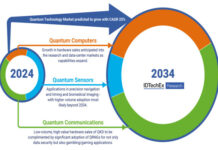Many people fear that artificial intelligence (AI) will replace human jobs and workers. However, the relationship between humans and AI in the workplace has evolved to become more collaborative rather than competitive. Rather than displacing the human workforce, AI is increasingly acting as a tool that empowers workers and enhances their productivity and potential.
When introduced thoughtfully, artificial intelligence technologies can optimize efficiency, accuracy, decision-making, and collaboration at levels not possible for unaided human teams. The key is viewing AI as a collaborative digital teammate rather than a replacement. With the right approach, AI and human intelligence are profoundly complementary.
Automating Repetition, Liberating Creativity
One major advantage of AI systems is their ability to automate repetitive, routine tasks such as data entry, customer service requests, meeting transcription, and many other administrative duties. By taking over these monotonous chores, AI liberates human workers to focus their time and energy on deeper creative problem-solving, relationship building, strategic thinking, and other irreplaceable capabilities.
For example, AI-powered chatbots can efficiently handle high volumes of routine customer service tickets, freeing up human agents to deal with more complex issues requiring emotional intelligence. Generative AI tools can quickly ideate, iterate, and produce marketing content and campaigns by generating countless suggestions based on trending topics and industry data. This level of high-speed ideation far surpasses solo human capacities.
Augmenting Efficiency, Maximizing Accuracy
In many sectors, AI has contributed to vastly increased efficiency and accuracy in job functions and workflows. In healthcare, AI can analyze patient data, medical history and test results to make diagnoses with greater precision than physicians. In manufacturing, AI performs quality control and detects microscopic defects in production lines with superior accuracy compared to human inspectors.
By processing volumes of data faster than humanly possible, generative AI models help organizations gain insights and make well-informed decisions. AI can analyze and summarize documents, communications, and other unstructured data into actionable reports in a fraction of the time.
Enhancing Teamwork, Decisions and Resilience
Thoughtfully implemented AI enhances collaboration and knowledge sharing between team members. AI-powered meeting assistants create searchable transcripts that give the entire team the ability to reference past conversations and retain organizational knowledge.
AI also complements human intelligence in decision-making. Combining AI’s data processing and pattern recognition with human contextual judgment and emotional intelligence leads to better decisions than either could produce independently.
At an organizational level, AI contributes to resilience. By continuously monitoring and forecasting changes in market conditions, sales pipelines, customer sentiment, or other factors, AI helps teams proactively adapt operations rather than reacting late.
Preparing Workers to Embrace AI Colleagues
Realizing AI’s benefits requires investing in employee training programs to build confidence in working alongside these technologies. For example, some companies use AI assistants to provide new hires with personalized onboarding guides tailored to their strengths and weaknesses, helping them come up to speed faster.
Upskilling workers to seamlessly integrate AI tools like virtual assistants, predictive analytics, and generative writing into their daily workflows is key to smooth adoption. With the right approach, humans can be augmented by AI, not displaced.
Implementing AI Ethically and Responsibly
To build trust in artificial intelligence , companies must prioritize data privacy, security, and transparency. Ethically dubious practices like biased algorithms, unconsented data collection, or lack of human oversight could undermine confidence.
Responsible AI adoption means respecting human dignity. While some roles will evolve, focused naysayers exaggerate the threat of mass job displacement, overlooking the new opportunities AI will create for those who embrace it.
The Future is Collaborative
Fears of humans being replaced by machines are overblown. The true potential of AI is not human exclusion but human augmentation. The future belongs to organizations that eschew AI scaremongering and invest diligently in the symbiotic collaboration between human talent and artificial intelligence. With ethical implementation, artificial intelligence will complement human potential and propel it to new heights.















